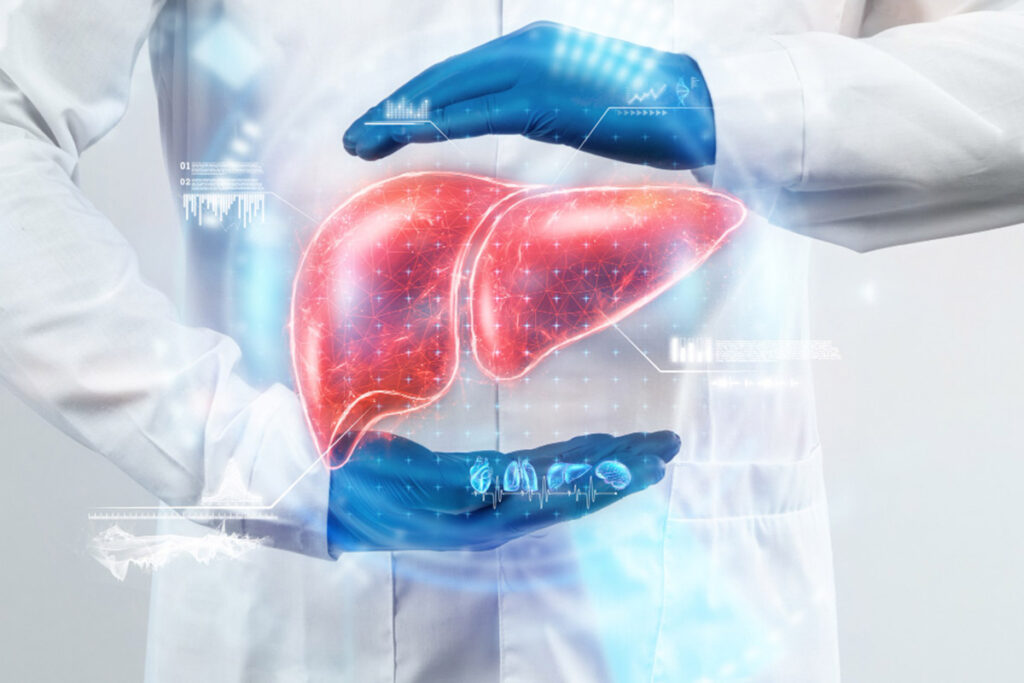Gastroenterology & Liver Transplant
- Home
- Gastroenterology & Liver Transplant

About Department
Gastroenterology & Liver Transplant
Gastrointestinal diseases include things like GERD, diarrhoea, and colorectal cancer. Some disorders have no visible GI tract issues upon examination, yet they nonetheless cause symptoms. There are apparent GI tract anomalies as well as signs of other disorders. Most digestive illnesses are treatable or preventable. Preethi Hospital is one of the best gastroenterology hospitals in Madurai, treating gastrointestinal and hepatobiliary disorders in both infants and adults. Our hospital is well-equipped with innovative technology and has advanced intensive care facilities.
At Preethi Hospital, we provide comprehensive care and treatment for a broad range of gastrointestinal conditions.
our team
Department of Gastroenterology & Liver Transplant Clinic

Dr. S. Karthikeyan
MS, MCH
Consultant Surgical Gastroenterologist
Expertise
- Endoscopy, Colonoscopy
- ERCP
- Endoscopic Ultra Sound
- Endoscopic Boarding
- Endoscope

Dr. R.R. Kannan
coming soon
Coming Soon
Expertise
- Coming Soon
Treatments and Procedures for Gastrointestinal Diseases
Along with the patient’s symptoms, doctors conduct a brief examination to identify gastrointestinal problems. Additionally, physical and chemical methods are used to perform diagnostic testing for intestinal diseases. In some cases, a thorough diagnostic assessment, including lab testing, imaging studies, and/or endoscopic procedures is required. Our experts use several procedures to treat gastroenterological problems.
ESD
Endoscopic submucosal dissection, (ESD), a minimally invasive and less expensive day-care surgery to remove benign, premalignant, and malignant gastrointestinal tumours.
Manometry
Manometry measures the strength and flexibility of the oesophagal muscles during swallowing and detects deformities in movement and pressure.
ERCP
Endoscopic Retrograde Cholangiopancreatography, ERCP, is a technique to diagnose and treat problems in biliary or pancreatic ductal systems.
Colonoscopy
A treatment to examine the large intestine to find abnormalities in the colon, rectum, and large intestine, such as polyps and signs of colon cancer.
Endoscopic Ultrasound
An endoscopic ultrasonography to diagnose oesophageal tumours, oesophageal disorders, stomach diseases and other anomalies to identify the scars and tumours using an ultrasonic probe.
No more gastrointestinal problems, when our experts are at work!

Best Liver Transplant Hospital in Madurai
Preethi Hospital aspires to deliver high-quality health treatment by connecting our doctors with persons suffering from liver diseases. Liver transplants are performed by highly skilled and qualified medical professionals with a remarkable record of accomplishment for routinely producing great results with high success rates. A multidisciplinary team including critical care, surgeons, transplant hepatologists, gastroenterologists, and well-trained technical and nursing staff perform the surgery.
Who requires a liver transplant?
Several liver disorders are severe and reach their final stage, leading to the lethal stage. Liver transplant treatment depends on the symptoms and results of several diagnostic problems. Certain treatment for those with liver cancer, acute or chronic liver failure, requires a liver transplant. This is because the liver performs the activities more effectively and efficiently than any other machine or device. We are committed to delivering world-class treatment for all liver diseases based on moral medical standards. The following illnesses can result in end-stage liver disease.
Cirrhosis
Cirrhosis is a chronic liver condition in which healthy liver cells are affected and become scar tissue, affecting their normal function.
Viral Hepatitis
Hepatitis is caused by several viral infections A, B, C, D, or E that damage and inflame the liver, leading to chronic infections.
Acute Hepatic Necrosis
At this point, liver tissue starts to deteriorate. Acute infections and adverse drug, medication, or toxin responses are among the causes that might exist.
Primary Liver Cancers
Hepatocellular carcinoma is the most prevalent kind of primary liver cancer in adults (HCC) that initiates in the liver.
Biliary Atresia
A congenital disease caused due to the blockage of biliary ducts, caused by abnormal growth or failure.
Autoimmune Hepatitis
In rare cases, our body can cause liver inflammation which results in autoimmune hepatitis that may develop due to environmental and genetic variables.








